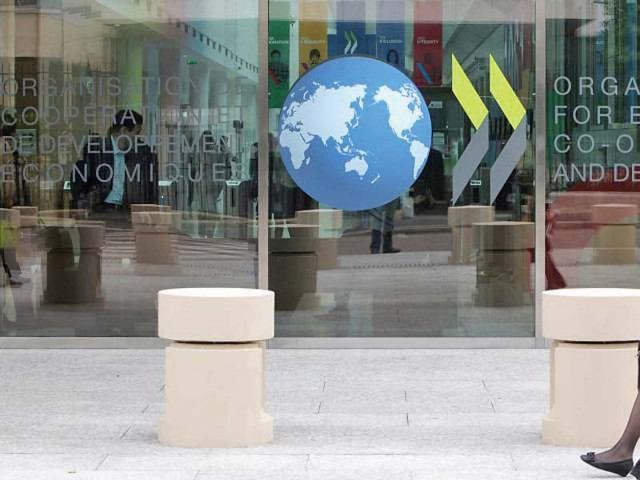Multinational companies: Pakistan aligns rules with OECD to curb tax evasion
FBR recently made amendments to Income Tax Rules 2002

FBR recently made amendments to Income Tax Rules 2002
PHOTO: FILE
The Federal Board of Revenue (FBR) has recently made new amendments to the Income Tax Rules 2002, making them compatible with requirements of the OECD. The amendments follow a new legal provision that the federal government had added to the 2017-18 budget in May last year.
The government has also given some relaxation to the companies where the requirements were more stringent. By amending Rule 27G of the Income Tax Rules 2002, the FBR has withdrawn the condition of filing country-by-country report by the MNCs for tax year 2017. Now the companies will be required to file these reports for 2018.
Reforming tax structure should be priority
MNCs are shifting their profits to low-tax countries to avoid heavy taxation and expenses to destinations where they are counted at higher rates. The OECD has undertaken a number of initiatives to counter this phenomenon. The OECD is working to align transfer pricing - an accounting standard where various entities of an MNC transact with each other - with value creation to curb tax avoidance.
G20 nations have developed a 15-point action plan to curb tax avoidance in which point 13 gives detailed guidelines for transfer pricing documentation and also provides a standardised reporting format called Country-by-Country Reporting (CBCR). The FBR’s rules bind MNCs to maintain documents of the transactions that their associates undertake.CBCR was likely to cause a meaningful impact on both the FBR and taxpayers, said Tola Associates, a chartered accountancy firm, in its comments on the new amendments.
But it said the requirement of maintaining the Master File and CBCR would overburden the companies that were already meeting local documentation requirements. This may significantly enhance the cost and create new administrative challenges for the MNCs, it added.
The chartered accountancy firm said the FBR’s risk-based approach for transfer pricing assessment would help tax authorities to identify the mismatch in value creation and allocation of income by the MNCs. The turnover limit for reporting purposes is Rs50 million for the local file and Rs100 million for the Master File.
Pakistan is closely working with the OECD to strengthen its legal framework. The CBCR Peer Review was completed by the middle of current month and its report is expected next month, according to FBR officials.
The new transfer pricing regime being operated under the OECD guidelines could have an effective check on the MNCs. Under the traditional transfer pricing mechanism, the FBR has raised Rs3 billion worth of tax demand till a year ago, most of them against pharmaceutical companies, according to the FBR.
On the recommendation of the UK Tax service, the FBR has also defined liaison office, which may be used for tax avoidance as it is not subject to the taxes.
There are about 200 MNCs working in Pakistan, majority of whom are in the construction sector.
Rs5.5m spent on Quetta Federal Lodges' renovation, Senate told
By amending the rules, the FBR has extended the scope of furnishing information. Rule 27D has been further amended to bind MNCs or their designated parent entity to file CBCR to the board within 12 months of the end of a fiscal year of the MNC group. This rule binds the FBR to transmit and exchange CBCR with the jurisdictions that are parties to the competent authority agreement. This sub-rule provides legal authority for automatic exchange of reports between the said jurisdictions. It has been clarified vide the SRO that any provision of the rules will not apply to transactions before the first day of January 2016.
But the FBR has again left a lacuna in its rules as it has attained the powers to give unlimited extensions in filing the documents by the MNCs. Rule 27P empowers the FBR to allow extension in time to persons to file any document, information, file or report with the Board.
“The power is exclusively of discretionary nature as the new rule 27P is silent on the point for how long a person may be allowed extension,” said the Tola Associates.
Published in The Express Tribune, February 27th, 2018.
Like Business on Facebook, follow @TribuneBiz on Twitter to stay informed and join in the conversation.


















COMMENTS
Comments are moderated and generally will be posted if they are on-topic and not abusive.
For more information, please see our Comments FAQ